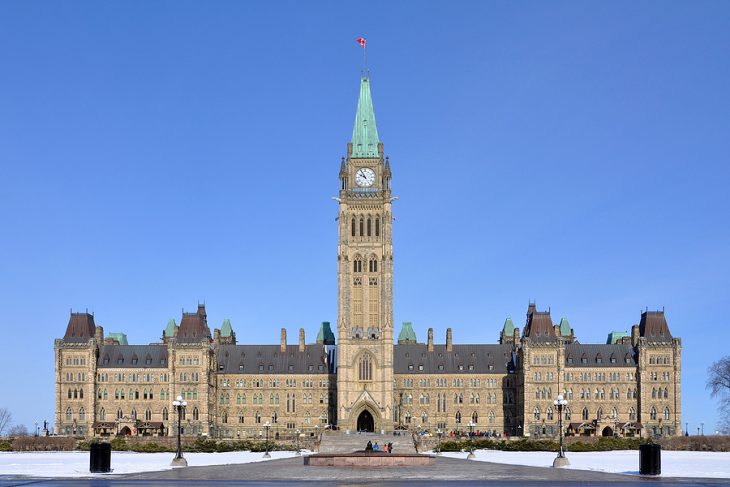
By Denis Carmel
OTTAWA – Last week, Conservative Senator Claude Carignan introduced Bill S-225, an Act to amend the Copyright Act (remuneration for journalistic works) to deal with the issue of the web giants like Facebook and Google sharing news stories without compensation for the journalists.
This would be done by amending the Act to include journalistic works under the realm of works covered by the Act – meaning compensation would have to be paid to a collective to be created, like the music business has with SOCAN.
This comes on the heels of Heritage Minister Steven Guilbeault saying the federal government would soon table such legislation in the House of Commons.
Of course, what’s been making headlines are the moves in Australia to force Google and Facebook to pay news publishers to circulate their work. Google has been attempting to make deals while Facebook has blocked all sharing of Australian news content on its platforms. Instead of using the Copyright approach, the Australian government is mandating the entities to negotiate an agreement and if the result is inconclusive it would go in arbitration.
“I must condemn what Facebook is doing, Minister Guilbeault said on February 18, in a Q&A with reporters on an announcement about funding for the Canadian Opera Company’s Digital Infrastructure Enhancements Project, and he said then he would be moving ahead with his own legislation to force the web giants to negotiate with news organizations, which will include broadcasters, too.
Facebook said in a release: “In response to Australia’s proposed new Media Bargaining law, Facebook will restrict publishers and people in Australia from sharing or viewing Australian and international news content.”
On the Carignan proposal, Justine Lesage, communications director for Minister Guilbeault, emailed the following comment to Cartt.ca: “We are encouraged to see that opposition parties are also considering fair media remuneration a priority, and we are ready to work with them for the benefit of Canadian journalism. We appreciate the urgency shared by opposition parties, but we must take the time to do this right. We intend to introduce legislation before summer 2021.”
John Hinds, president of News Media Canada, in a Toronto Star story called the Carignan bill “a welcome thing,” but questioned whether it’s the right approach. “Our preference has been a competition-based model, which we feel is a market-based solution based on the Australian model which has proven to be a much better deal for news publishers than the copyright solution … which is much more limited because it covers far less content,” he said.
Carignan is the same member who had introduced legislation to protect journalistic sources, back in 2016, legislation that received royal assent in 2017.
France has also made moves with this as well and it is known that Heritage Canada is watching closely what is happening in the two countries. On January 21st, Google France and The Alliance de la Presse d’Information Générale announced an agreement about neighbouring rights under French law – the culmination of months of negotiations within the framework set by the French Competition Authority.
The Alliance de la Presse d’Information Générale represents some 300 publishers from France and this agreement establishes a framework within which Google will negotiate individual licensing agreements with IPG certified publishers within APIG’s membership, while reflecting the principles of the law. These agreements will cover publishers’ neighbouring rights, and allow for participation in News Showcase, a new licensing program recently launched by Google to provide readers access to enriched content.
The remuneration that is included in these licensing agreements is based on criteria such as the publisher’s contribution to political and general information (IPG certified publishers), the daily volume of publications, and its monthly internet traffic. Google did not volunteer how much money is at stake.
Sébastien Missoffe, CEO of Google France said in January, “Today’s agreement with APIG is a major step forward. It confirms Google’s commitment to compensate publishers appropriately under French law and opens up new opportunities for our publisher partners. We are happy to contribute to the development of news publishers in the digital age, to further support journalism.”
“After long months of negotiations, this agreement is an important milestone, which marks the effective recognition of the neighbouring rights of press publishers and the beginning of their remuneration by digital platforms for the use of their online publications,” added Pierre Louette, CEO of Groupe Les Echos.


